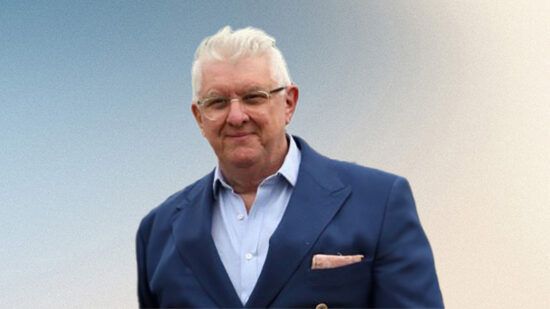In a few short months, through a series of executive orders and other announcements, President Trump has changed the political landscape and US policy direction. The world is reacting. A relationship between the intersection of politics, policy, and investing has always existed – just look at broader US equity market downturn this quarter in the US compared to Europe. Is this an aberration, or the start of a much larger structural shift? That’s a larger topic to deal with in detail another time. What matters for our current focus is that in markets, rather than climbing the wall of worry (rising in uncertain times), many investors are headed for the exits. So, the question is – what next?
Global asset management firms based in the US, and increasingly those based in Europe, now find themselves between a rock and a hard place. Fearing litigation or investor backlash they are quietly (or sometimes vocally) complying with executive orders, dropping commitments to DEI, backing out of climate accords, and removing mentions of ESG from annual reports and earnings calls. Does this spell the end of ESG (environmental, social, and governance factors) – and its close relations sustainability and climate action – as the words ‘drill, baby drill’ echo across the headlines?
From greenwashing to greenhushing
Only a few years ago, companies were falling over themselves to tout their ESG credentials and share examples of what they were doing to make a difference. While specific ESG language is quickly vanishing from company communications, many silently continue to deploy their same investment practices. Although due to many reasons, this is primarily because it just makes good risk management sense.
Prudent risk management
In a recent conversation with an asset manager who has operations in the US, UK and Europe, I asked directly about ESG. Their response echoes a theme I’ve been hearing: ESG is fundamentally prudent and appropriate risk management, is embedded in investment processes, and capital will continue to find its way to the best ideas. I was given examples for each ESG factor.
For ‘E’, one needs to understand what impact climate change will have on their business. If their factories require water, what is the implication? Do they risk having stranded assets in the future? On ‘S’, it was put bluntly to me; hurting your customers will kill a business in the long term, and mismanaging supply chains and turning a blind eye to poor practices will only ultimately come back to hurt you. It just makes logical sense to pay attention to ‘S’. On ‘G’, well-governed companies outperform in the long-term. Focusing attention to ‘G’ allows you to avoid the likes of Enron and WorldCom.
What AI can tell us about what’s actually happening
SOFI is the tool AI mallowstreet developed that’s designed specifically for the financial services industry. It helps our clients save time, check messaging, improve delivery, monitor performance and capture questions. SOFI has several key lenses to help analyse a conversation, and one of these is ESG. The ‘ESG lens’ allows participants to see what proportion of the conversation focuses on specific ESG factors, and surfaces example sentences to verify accuracy.
To get a sense of what was happening on the ground in real time, we analysed the asset manager presentations from our mallowstreet events in the first quarter of 2025. While this is a relatively small sample size of about 20 different asset managers giving 50 presentations to institutional investors in small groups at our events, the results show that there was no change to the amount of time being spent on the topic of ESG or the engagement on the topic from UK institutional investors when compared to previous quarters in 2024.
In essence, the topic is still getting the same amount of airtime and investors are still engaging with the topic. Perhaps this is because many asset managers and institutional investors alike are of the opinion that this is simply prudent risk management. But this is only in the UK, and it would be fascinating to explore a breakdown across different geographies.
Where are we headed?
Lacking a crystal ball, I have no clear vision of where this conversation is going. Politics, and US politics, certainly has an outsized voice and influence on global markets. As someone put it to me recently, “the only certain thing we can rely on is that uncertainty is going to prevail for the foreseeable”. I am not sure if we are moving to a world of greenhushing either, where companies and investment managers quietly get on solving the problems that they face in their businesses. Perhaps we have already moved to a world of prudent risk management.
That said, Matthias Berninger, Bayer (the German Biotech)’s head of public affairs, sustainability and safety said it best in a recent interview with the Sunday Times: “My very conservative, very traditional view is that businesses make money when they solve real problems. And boy, climate change will create real problems. Businesses that invest in solving the problems will have a better prospect than those that do not.”








